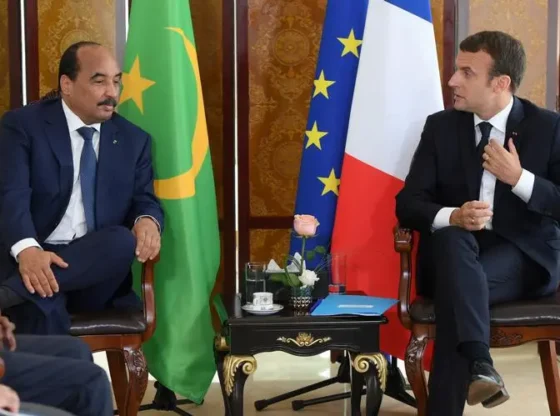French President Emmanuel Macron began a five-day tour of Africa on Thursday, starting in Mauritius, with a reiterated ambition to forge “win-win” partnerships in response to shared challenges, an effort set against the backdrop of waning French influence on the continent.
The president is scheduled to arrive in Port-Louis, the Mauritian capital, around 13:00 local time (09:00 GMT). Mauritius, located near the French overseas department of Réunion is widely regarded as an economic success story in the Indian Ocean, with a GDP per capita exceeding $10,000, according to the World Bank.
Following his visit to Mauritius, President Macron will travel to South Africa to attend the G20 summit on Saturday and Sunday. He will then continue on to Gabon, where he will meet the country’s new president, Brice Clotaire Oligui Nguema, two years after the coup that ended the Bongo dynasty. His tour will conclude in Angola, where he will take part in an African-European Union summit.
Mauritius, home to just over 1.2 million people, has successfully transitioned from a sugar-cane-based economy to one diversified across tourism and financial services, although recent years have brought increasing vulnerabilities.
“It is a country that has emerged from poverty in 30 years and now stands at the threshold of high-income status a success story in which French companies have played a significant role,” the French presidency notes.
In the Heart of the Indian Ocean
A former French and later British colony, Mauritius gained independence in 1968 and maintains a strong Francophone tradition, despite English being the official language. Approximately 15,000 French nationals reside on the island, according to the Élysée.
During his visit, President Macron will meet Prime Minister Navin Ramgoolam on Thursday evening for bilateral discussions aimed at reinvigorating political ties more than 30 years after the last visit by a French president, François Mitterrand, in 1993.
The visit also comes at a sensitive moment, following a recent coup in neighboring Madagascar that has reignited anti-French sentiment. Reports by RFI that Paris facilitated the exfiltration of former President Andry Rajoelina have sparked widespread outrage in Madagascar.
President Macron also intends to reaffirm France’s strategic presence in the southwest Indian Ocean amid increasing Chinese, Russian, and Indian engagement in the region, particularly through enhanced cooperation on maritime security.
On Friday, Macron and Prime Minister Ramgoolam will visit the French Navy vessel Champlain, which supports surveillance operations alongside the Mauritian coast guard as the region faces rising levels of drug trafficking, illegal fishing, and irregular migration.
Meanwhile, the French Development Agency (AFD) is expected to sign agreements to strengthen the country’s electricity grid amid escalating climate-related risks and to support modernization of the water sector.
Ouagadougou and a Shifting African Strategy
At every stage of the tour, the president aims to “advance economic solutions built on win-win partnerships that benefit French businesses, French citizens, and African countries,” according to the Élysée.
French firms are particularly looking to support Gabon’s efforts to diversify an economy still heavily dependent on oil, with opportunities emerging in the mineral sector, according to French officials. In South Africa, Macron will participate in the launch of a Franco–South African business council modeled on an existing initiative in Nigeria.
However, the broader reorientation of France’s Africa policy first articulated in Macron’s 2017 Ouagadougou address and designed to move beyond France’s post-colonial legacy has encountered obstacles.
The pivot toward Anglophone African nations is often viewed skeptically by Francophone partners, and efforts to engage directly with youth and civil society such as the 2021 Africa–France summit in Montpellier, which excluded heads of state have been perceived by some as paternalistic.
These challenges come at a time when French forces, deployed for years in counter-terrorism operations, have been expelled from several Sahelian countries amid surging anti-French sentiment. Simultaneously, France’s share of trade with Africa has continued to decline within the continent’s overall commercial landscape.
